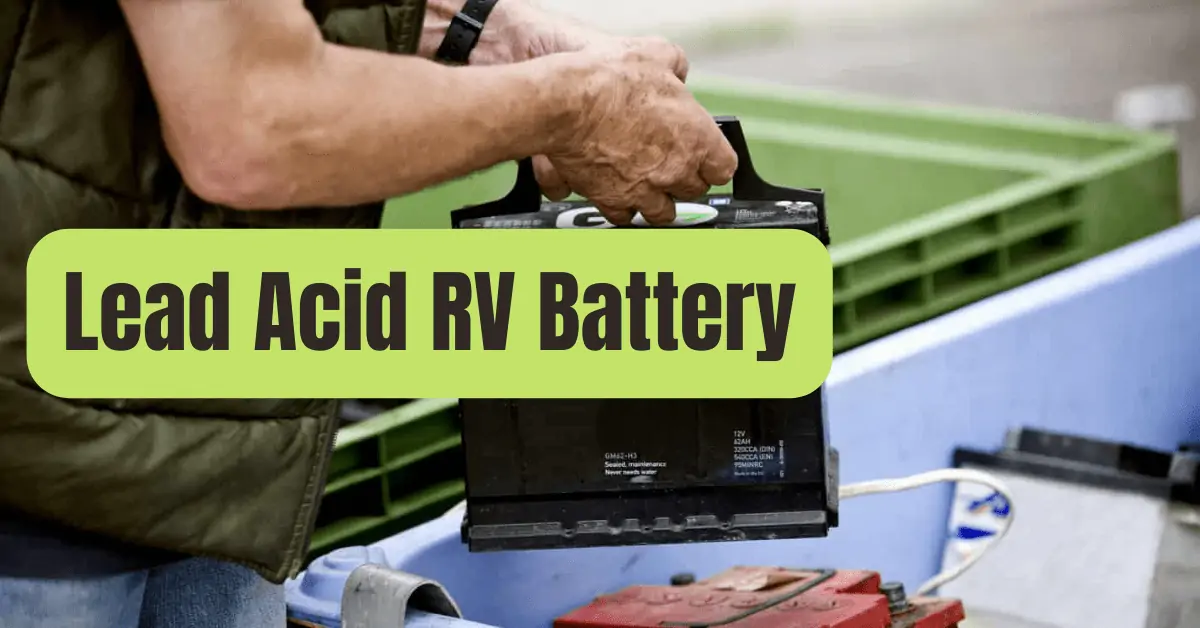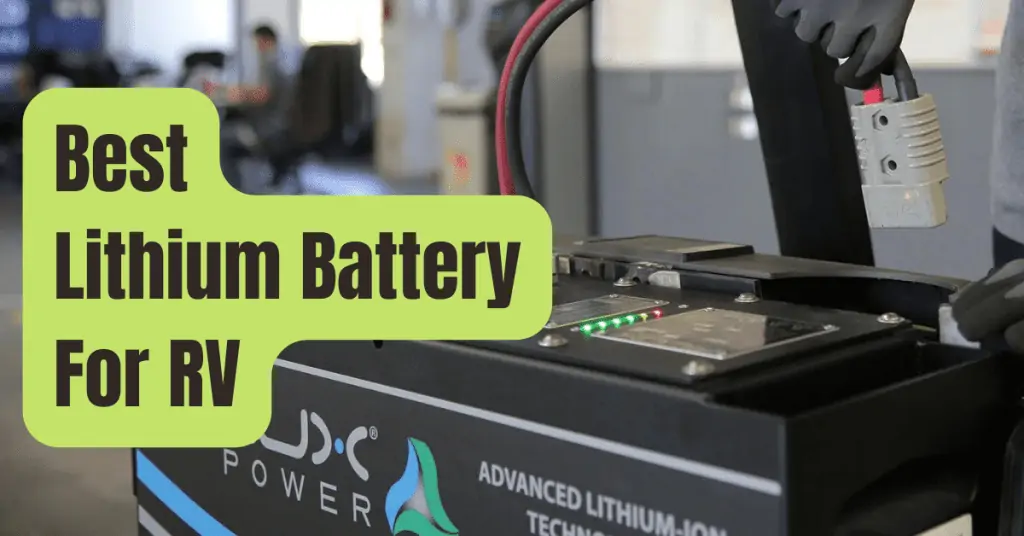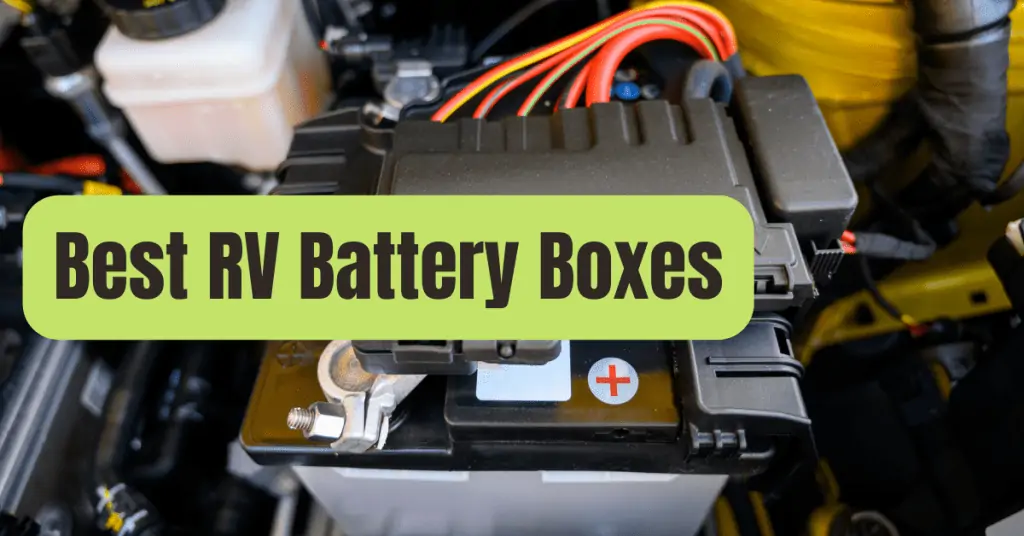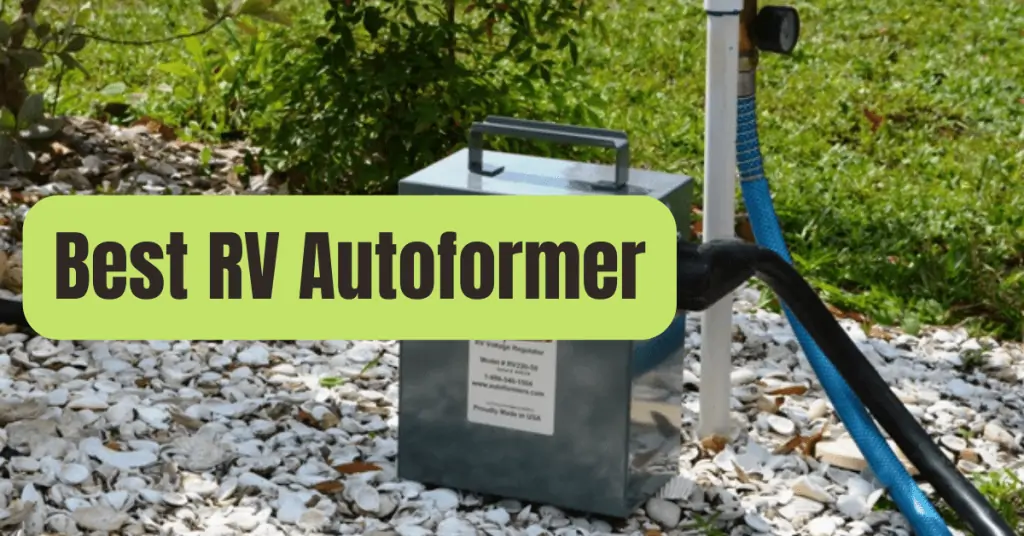Both lead acid and lithium RV batteries are available when looking for deep-cycle batteries for your RV.
What distinguishes a lithium-ion RV battery from a lead-acid battery? Here, we inform you!
What Distinguishes A Lithium Rv Battery From A Lead-acid Battery?
Both have the same fundamental purpose, which is to provide your RV electricity for an extended length of time.
Both are intended to be nearly completely drained before being recharged (this is what “deep-cycle” refers to).
There are several distinctions between a lithium RV battery and a lead acid battery, however.
Let’s first examine what a lithium and lead acid RV batteries are in more detail.
The discrepancies between them will then be compared.
A Lead Acid Rv Battery Is What?
Like other lead acid batteries, the lead acid RV battery runs on flat lead plates dipped in an electrolyte.
This enables it to hold a charge and provide power in several applications, particularly in automobiles and recreational vehicles.
Technology-wise, lead-acid batteries are somewhat outdated.
RV deep-cycle batteries come in a variety of varieties that have been created throughout time.
#1. Lead-Acid Batteries With Flooding
The “flooded” lead acid battery is the first kind.
They are so named because a liquid electrolyte fully covers the lead plates.
Although somewhat trustworthy and affordable, they have a number of drawbacks:
- They must be replenished with distilled water on a regular basis.
- Cold temperatures render them useless.
- They are huge and heavy.
- They don’t live for very long.
- Off-gassing, a phenomenon associated with lead acid batteries, causes them to release harmful gases.
- The electrolytes must be kept upright to prevent spillage.
New lead acid battery technologies like gel and absorbed glass mat were developed to get around these restrictions.
#2. Batteries In Gel
The gel battery is the first.
These use a semi-solid gel as the electrolyte rather than a liquid one.
Any orientation may be utilized with these batteries.
Since they are entirely sealed, there is no off-gassing and they are spill-proof.
#3. Batteries With Absorbed Glass Mats
The absorbed glass mat (AGM) battery comes next.
Fiberglass mats are used in AGM batteries to absorb the electrolyte.
They are spill-free thanks to this configuration, which also has additional benefits.
For instance, these batteries are resistant to off-gassing and cold conditions and may be charged more quickly and drained more completely (up to 80%).
A Lithium Rv Battery Is What?
Lead is replaced by the element lithium in lithium batteries, commonly known as lithium-ion batteries.
There are several varieties.
A lithium iron phosphate battery will often be used for your lithium-ion RV battery.
LiFePO4 batteries are the typical name for them.
Over lead acid batteries, LiFePO4 batteries provide a number of advantages:
- Because they have a greater energy density than lead acid batteries, they can store more energy in a smaller area.
- They produce a constant current for a longer period of time since they have a flat discharge curve.
- These batteries won’t lose their charge even if they are kept in storage for extended periods of time because of their very low self-discharge.
RV LiFePO4 batteries provide additional benefits over other lithium battery types.
They’re a lot safer, for starters.
Some lithium battery varieties are unstable and carry a danger of explosions and fires! However, LiFePO4 batteries are very safe, stable, and won’t blow up or catch fire.
Nickel and cobalt are not necessary for LiFePO4 batteries to function.
Due to the high cost and scarcity of certain resources, it makes them slightly less costly to create.
Additionally, it stays clear of the moral dilemmas raised by cobalt mining.
Last but not least, a lithium-ion RV battery may be depleted up to 100% before being recharged.
Because you may utilize extremely high charge rates, they can also be recharged very rapidly.
Lead-acid Vs Lithium Rv Batteries
We can now directly compare lithium and lead acid batteries because we’ve covered their technical details.
Let’s examine the key distinctions between lead acid and lithium RV batteries.
#1. Performance
The lithium ion RV battery outperforms all other types of batteries in terms of performance.
A lithium battery lasts longer and offers more (and more reliable) power!
Some flooded lead acid batteries have a low discharge limit of 30–50% of their capacity.
You’re only looking at a 60–80 percent drain, even with the more sophisticated AGM batteries.
In contrast, a lithium RV battery will provide 80% (or even 100%!) of its capacity before needing to be recharged.
Additionally, compared to a comparable lead acid RV battery, it may recharge faster.
#2. Lifespan
A lithium RV battery outlasts a lead acid battery in terms of longevity once more.
The number of times a battery may be drained and recharged, or cycles, is used to estimate a battery’s life expectancy.
The lifetime of a lead acid RV battery is typically in the hundreds.
Some batteries only last for 300 cycles, while others might last for over 1000.
In contrast, a lithium RV battery offers many cycles throughout the course of its life.
As many as 5000 cycles may be provided by certain batteries.
To put the number of cycles a battery goes through in the context of time: A lithium RV battery may last 10 years or longer than a lead acid RV battery, which will only last 2 to 5 years.
#3. Cost
In the argument between lithium RV batteries and lead acid batteries, this is one of the rare situations in which a lead acid RV battery may triumph.
(depending on the size and type).
As a result, a lithium RV battery costs up to five times as much as a lead acid RV battery for your original investment.
A lead acid RV battery could initially cost less, but it doesn’t tell the entire picture.
Keep in mind that lithium batteries may survive for ten years or more whereas lead-acid batteries only last a few years.
You’ll probably spend the same amount of time changing your lead acid batteries every few years, if not more.
To put it simply, a lead acid RV battery can enable you to make some immediate financial savings.
However, a lithium RV battery can end up costing you less in the long run.
#4. Weight
Weight is the last factor to be considered when contrasting lithium and lead acid RV batteries.
The lithium RV battery is the winner once again.
Lithium batteries are much lighter than lead acid batteries due to their better energy density.
In fact, lithium RV batteries are as light as or even lighter than lead acid batteries!
Conclusion
Due to their age, lead acid batteries offer several advantages.
They are more dependable and may need some maintenance, but they are less expensive up front.
However, lithium is nearly always superior than lead acid when compared to RV batteries.
Compared to lead acid batteries, lithium batteries will be lighter, more effective, and more potent.
Additionally, even though they are more expensive, they last a great deal longer, saving you money over time.
Lithium RV batteries are the greatest option for the majority of RVers due to all of these advantages.
We strongly advise visiting Mighty Max Battery if you’re seeking for the finest lithium batteries for your RV.










